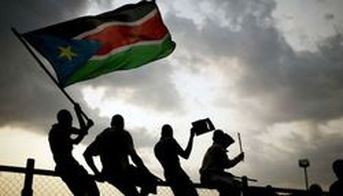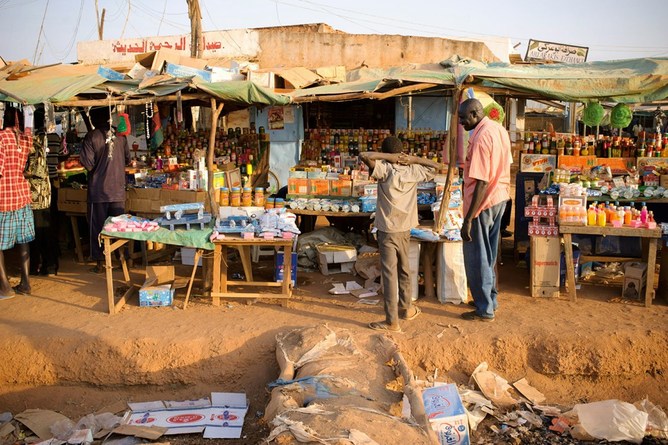|
Samson S. Wassara (PhD), University of Bahr el Ghazal, South Sudan
The peace was signed on the August 17th, 2015. Yet the implementation, according to the government of national unity, started on April 29th, 2016. This fact itself stuns the general population as to why it took that long for parties of the August 2015 agreement to declare the starting date about eight months from the date of signature. Peace had been on the lips of the South Sudanese since IGAD-led negotiations kicked-off in January 2014. All media were pumping the message of peace and artists sang, dramatizing peace throughout the years of the civil war. The conflict escalated and violence intensified as people were yearning for peace. The signature of the Agreement on the Resolution of the Conflict in the Republic of South Sudan (ARCISS) on August 17th, 2016 did not invite jubilation on the part of the general population for one reason. All the parties to the conflict did not append their signatures at the same venue (Addis Ababa) and on the same date. This very action sent different signals to the South Sudanese. The late signature of the agreement amid several reservations was not an event to celebrate. The question that kept on coming to surface is whether or not the peace would actually materialize to the expectation of the average citizen. People’s Attitudes towards Peace Agreements in Retrospect Peace agreements raise hopes of people who suffer the stress of poverty, war, and violence. Given the number of overarching civil wars, militia violence and many other forms of armed groups, South Sudan has witnessed a number of peace agreements in the past. The most important ones are the Addis Ababa Peace Agreement on March 3rd, 1972 and the Comprehensive Peace Agreement (CPA) signed on January 9th, 2005. These were very jubilant events for people in South Sudan when they were signed. During the Addis Ababa Agreement in 1972, an overwhelming majority of people overtly demonstrated their joy and jubilance to welcome back Southern Sudanese politicians from exile and their army, the Anyanya. There was a general euphoria that engulfed not only Southern Sudan, but also progressive forces in Northern Sudan. Only radicals in communities in the North and members of the traditional political parties were lukewarm with regards to the agreement. The process of negotiations of the CPA invited more euphoria than one could imagine. The signing of the Machakos Protocol marked the beginning of the hope that kept on growing until the final agreement on January 9th, 2005.The agreement raised hopes of South Sudanese people everywhere in the world: those under control of Sudanese Government, refugees and people in the Diaspora. South Sudan was dreaming of all kinds of individual and collective projects for peacetime period, especially if the referendum process went on well until independence was achieved. The signature of the CPA showed overwhelming and excessive jubilations in Southern Sudanese communities. The question to answer is “Why did euphoria and jubilance miss in South Sudanese communities at the signature ARCISS compared to past agreements?” Issues with the War and Attitudes of Parties to the ARCISS There may be many reasons why people of South Sudan are reserved about the ARCISS as a peace agreement. In this section I will discuss five compelling reasons why euphoric atmosphere in the society is lacking with regard to the ARCISS and the resulting transitional government popularly known as the Government of National Unity. People do not really know why the war broke out in the first place. The parties to the violence were all members of the ruling party the SPLM. Why did they fracture into factions: The SPLM (IG), the SPLM (IO) and the SPLM (FD)? Many people look at the protagonists as confused leaders who elevate their factional interests above the national interest. What was so intriguing that could not be settled via the party’s operational mechanisms? The average citizens, having no vested interests in businesses of the government, described the war as senseless. The second issue concerns the nature of negotiations. Many South Sudanese felt that parties to the conflict did not care about the plight of the civilian population. So many citizens were victimized by the war in the form of loss of lives, properties, displacement and flight into refuge. Yet the main parties to the conflict, SPLM/A (IG) and SPLM/A (IO) strove to knock out the other from the politico-military arena of South Sudan. The SPLM (FD) wanted to portray themselves as a better alternative political force to the warring factions of the same party. These contradictory group perceptions contributed to the lengthy negotiations, which were not appreciated by the general public. More frustrating were escalations of violence whenever negotiations were in progress. Thirdly, the way parties to the conflict conducted themselves in the months leading to the signature of the ARCISS was not understood by non-partisan South Sudanese people. It was difficult to determine whether or not the groups of signatories were serious about working together to mitigate the suffering inflicted by the war on the population. The wrangling among signatories of the agreement did not augur well with citizens of South Sudan. People began to contemplate as to how the leaders of political groups would work for the interest of the nation. Fourthly, South Sudanese armed conflict divided the IGAD peace-makers. Relations soured among the mediators of the conflict in South Sudan in the days leading to the signature of the ARCISS. Ethiopia felt that Uganda was undermining the IGAD peace process. Tensions among mediators persisted until the deal dubbed ARCISS was signed on August 17th, 2015. Ethiopia and Ugandan presidents ran into verbal encounter resulting in early departure of Yoweri Museveni before signature of the agreement. The conduct of the mediators was a matter of concern to South Sudanese citizens. The Ethiopian-Ugandan tension was reflected in the reticence of parties to the agreement to start its implementation. Fifth and finally, the economic situation is a function of the absence of euphoria among citizens of South Sudan. The war destroyed the fragile economy of South Sudan. After all, the country depended mostly on oil for its national income. Its production declined as well as the price on the world market. Public revenue dwindled significantly. The pinch of poverty and scarcity of livelihood resources lead more South Sudanese to believe that signing of an agreement between parties to the conflict and the formation of a government of national unity would alleviate the pain of economic nose diving. The delays in the process of return of the opposition into the country and controversial rhetoric between the two main signatories of the ARCISS never generated optimism of genuine peace in the ranks and file of the general population. Transition Under People’s Observation Undoubtedly, the factors mentioned in the section above have generated a kind indifference in the society to the extent that people developed cautious optimism about the future effectiveness of the Government of National Unity formed in April 2016. Citizens tend to follow statements of members of the government in the media and reports on meetings of the Council of Ministers. What is more important is not what the government says but what it does and how people feel. Controversial rhetoric seems to still be flowing, especially in meetings of the Joint Monitoring and Evaluation Commission (JMEC). Statements of disagreement among members of this organ of the ARCISS do not cease to flow. These are the political indicators that citizens observe and make their own assessments. Moreover, the deteriorating economic situation of the country is not doing favor to the Government of National Unity. The cost of essential commodities is always on the rise. It is hitting hard on the citizens as well as on government institutions. This could be seen in the inability of the government to pay its civil servants on time or provide energy to enable government offices to run daily businesses and officials to discharge their duties. The economic indicators are under the scrutiny of experts and of the general public. The very fact that the Government of National Unity is formed and that the legal framework is not enshrined in the Constitution remains problematic. It seems there are articles of the agreement, which are in stark contradiction with dispositions of the Constitution. People are expecting the harmonization of the Interim Constitution of South Sudan with the ARCISS. This is yet to happen. All these facts worry many people in the country to the extent that they begin to doubt the viability and effectiveness of the political transition. Conclusion Unlike enthusiastic reactions of people in the aftermath of past peace agreements, South Sudanese have not been allowed to demonstrate their support to the ARCISS for reasons best known to the signatories of the agreement and stakeholders. The litmus test for the agreement would have been an invitation of citizens for public rallies to explain new policies of the Government of National Unity. The number of people attending such rallies could have served the purpose of rating popularity of the agreement and new government in transition emanating from it. Relations within the government remain murky and shaky. This situation does not raise expectations of the people as far as the long awaited peace deal is concerned. It remains to be seen how the parties in the government intend to build consensus and unity while going about their businesses of state or nation building in the immediate future for the traumatized majority of South Sudanese people. Only time will tell if people’s prosperity will be realized in the framework of the current agreement. The Zambakari Advisory LLC
P.O. Box 18691, Phoenix, AZ 85005 E: info@zambakari.org Tel: 602-670-9326 Fax: 602-441-4299
0 Comments
Your comment will be posted after it is approved.
Leave a Reply. |
Archives
October 2023
Categories
All
|
Copyright © 2023 The Zambakari Advisory - Privacy Policy
Our site uses cookies to improve your experience. You can control cookies by adjusting your browser or device settings.
If you continue without changing your settings, we assume that you are happy to receive all cookies.
If not, please feel free to opt out here.
SEO by Qasim Khilji
Our site uses cookies to improve your experience. You can control cookies by adjusting your browser or device settings.
If you continue without changing your settings, we assume that you are happy to receive all cookies.
If not, please feel free to opt out here.
SEO by Qasim Khilji


